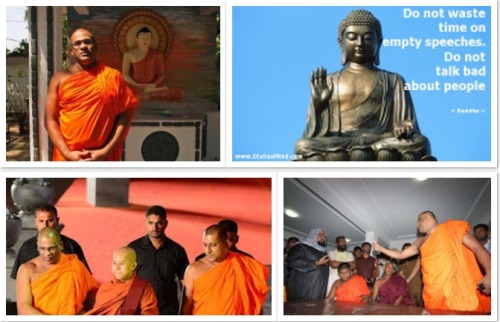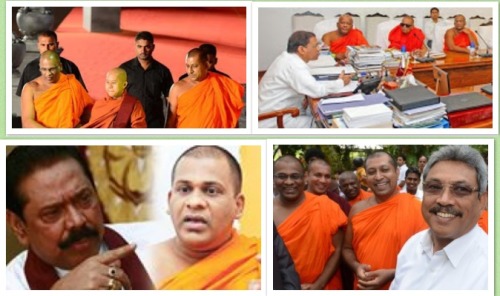Hate Speech Laws


June 4, 2017, 9:02 pm
 [Excerpts of the opening Remarks made by Prof. S. Ratnajeevan H. Hoole on 2 June 2017 at a training programme for media personnel]
[Excerpts of the opening Remarks made by Prof. S. Ratnajeevan H. Hoole on 2 June 2017 at a training programme for media personnel]
Beverly Hagerdon, Ladies and Gentlemen:
Thank you Beverly for the opportunity to address this August gathering.I also thank Australian Aid and USAID for being our sponsor through the International Federation of Electoral Systems, IFES. Many of our Election Commission’s activities are because of IFES’s largesse. So thank you indeed.
I want merely to say a few words on hate speech because media Ethics guidelines are being considered by the Election Commission. Hate speech is very common in our political context. I will focus on a minority perspective. Sri Lanka is full of hate speech whether over elections or not. We are particularly ignorant of defamation laws and need only to look at web-based discussion pages. India on the other hand is quite strict; perhaps too strict. We must learn from their experience.
Our culture is rather insensitive on hate speech. Take our everyday life. My bicycle repairmen, long dead now, was a mute or speech impaired as we would now say. Although he had a name, he was referred to as Mute (Oomai in Tamil). I never got to know his name. Going to him, we would ask "Is Mute in?" Boys looking for fun would deliberately anger him. He, unable to speak, would scold them in undecipherable sounds, which is what the boys wanted. And that was fun!
The school of a Head Teacher with childhood polio had his school nicknamed as "Crooked School" or Choththip Pallikoodam. He is long dead but the school is even today occasionally referred to by that egregious nickname. We pride ourselves as modern, but are really quite primitive and cruel. These terms like Oomai and Choththi were part of our normal discourse. While they did not widely enter our newspapers, their firm roots in our society show why hate speech in the press is difficult to stamp out.
To take another example, I was present when the candidature of the wife of an LTTE-er was discussed. There was concern that she would bring her politics into the party. Back came the reply: "Do not worry. If we shout at her twice, she will keep quiet." She is today a successful politician although I do not agree with her on many things. The point is that women, given the chance, grow into their shoes.
A lot of hate speech has been written against me. A typically vicious document against me is from [a paper] written when I was VC, Jaffna University; it was no less than an editorial!
Hate speech insults and threatens the targeted group, makes them live in fear or shames them, making them hide who they are. All these ingredients are seen in the paragraph shown. Curiously, it is hate speech by minorities against minorities in their midst. Hate speech is not understood properly and difficult to criminalise when even minorities do not understand the enormity underlying hate speech. [The paper] is jointly published in Canada and the UK, where the laws on hate speech are very strong. However, no prosecution was ever brought against the newspaper. For, who will dare to complain in this vicious system, especially when of minority status?
In hate speech debates, the competing norms have to do with the rights and safety of minorities on the one hand, and the freedom of speech and thought on the other. Hate speech targets people or a group of people based on their race, religion, ethnic origin, sexual orientation, disability, or gender.What is commonly heard of women politicians makes quite obvious why we have only some 5% women in parliament.
Newspapers play a double game sometimes. For example, there was an instance when a black man raped a white woman in the US. The man’s name was something race-neutral like Charles Brown. The public had a right to know that the assailant was black. But, revealing that may cause a race riot. Moreover, making that revelation would make people accuse the newspaper of fomenting trouble. So what did the newspaper do? They did not refer to Charles Brown’s race. Instead, they published his photograph! Now the newspaper could claim responsible reporting.Was that newspaper right in what it did? Or, was it wrong?
In Sri Lanka, however, giving a person’s name is as good as giving his ethnicity. Even long standing Tamil names like Hoole, Warren, Kingsbury, Hemphil, Mann etc. from up my family tree are immediately understood as Tamil Christian. How will we address this problem of blaming an offender’s race, instead of him or her as an individual?
In describing the atrocious treatment of oppressed castes in Sri Lanka, to prove our point, we need to say such and such happened to so and so, a member of an oppressed caste. But, if we cannot mention a person’s caste, how can we show, how can we prove, that there is caste-oppression? In the selection of candidates by parties caste is always a consideration. Can we report it? I have personally been troubled by this issue. I saw exposing the oppression as the greater good, compared to the disservice done in identifying a person as a member of an oppressed caste. I do not have all the right answers. But, you certainly have a lot to think about.
Today, a widely read newspaper in Jaffna calls on all Tamil Christians to convert to Hinduism because the Editor claims Christianity to be alien to Tamils. The Chief Priest of the Nallai Adheenam asked the new VC of Jaffna University at his welcome meeting in Inuvil to make it Hindu. The former Vice Chancellor of University of Jaffna told the UGC Chairman that there was no place for Christians. And the UGC Charman endorsed this atrocious idea. A Chief Minister defending in [a newspaper] interview why he worships a criminal who was convicted of rape and murder in India, explained that Jesus Christ, too, was a condemned criminal! But Jesus never raped or murdered anyone. Many newspapers kept off these stories, doing the public a disservice in suppressing these hate crime stories.
Notice that hate speech always puts down minorities. It is because the majority has the protection of their larger numbers. Minorities rarely will have the guts to say hateful things about the majority. For, if and when they do, they risk getting wiped out.
Minorities are therefore most often the target of hate speech. Hate speech laws, if any, would ostensibly be to protect minorities Yet, I am firmly against laws restricting hate crime. Why is that?
Consider law enforcement here. It is not race neutral. In as simple a matter as speeding tickets, going by my experience plying the A9 , minorities are ticketed the most (at least by proportion). I am driven about regularly. Tamil drivers immediately get down from the car and plead. They carry a small wad of Rs. 100 notes and get away. My Sinhalese drivers remain seated and smile and talk in Sinhalese, mention the Election Commission and are let off.
Driving at 60 kmph 14 km towards Anuradhapura of Puttalam, I was ticketed by a policeman showing a radar reading of 72 kmph. I had to pay a Rs. 1,100 fine because to tell the judge of the crooked cops I would have had to make a few trips to court there. Driving to Galle Road from Marine Drive one night, I found that the one-way sign had fallen off. The Tamil driver in front was ticketed. My Sinhalese driver talked his way out. I can cite several such examples, but need not I think.
Again the lack of prosecution against killers in the northeast is well documented, Gnanasara Thero, who has said unkind things against Muslims, it is reported, is being protected in a Minister’s house while the police claim to look for him.
These should explain why I do not want hate crime laws. Such laws will never protect minorities and at the same time curtail free speech by minorities. Every time I raise difficulties that minorities face, the response is that I am promoting communalism and communal division. Thus, with hate speech laws in place, even the little we get to say will be suppressed.
Moreover, enforcement will be unsymmetric. Strong laws in the hands of nonneutral judges can be misused. For example in the Bible, Jesus Christ says, "I am the way, the truth and the life. No one comes to the Father except through me." Could that last part about no one coming to the Father except through Jesus be interpreted as a hate crime to ban the Bible?
I believe it can be, by a biased judge. Something similar happened to a preacher in Singapore when I was working there. It is clear how hate speech laws can affect freedom of thought and religious freedom with it.
I need not say more, need I? Thank you.
